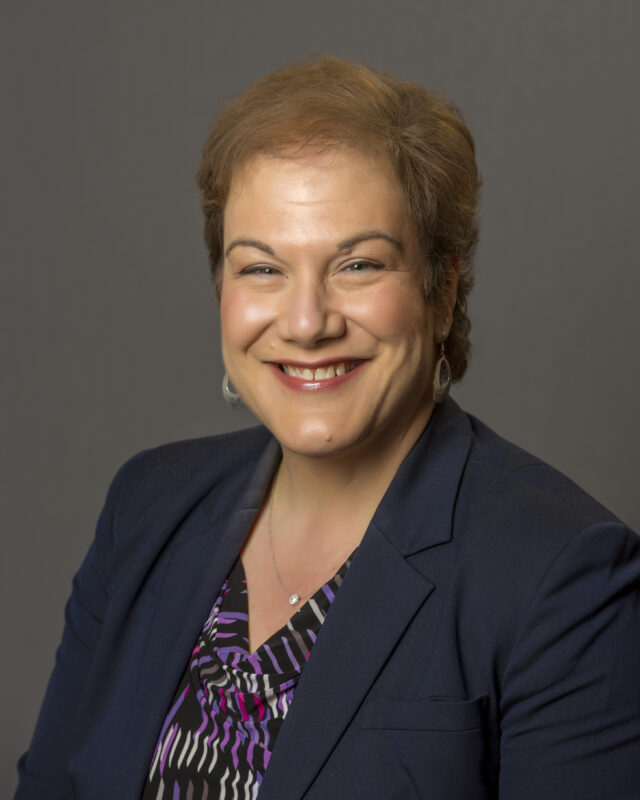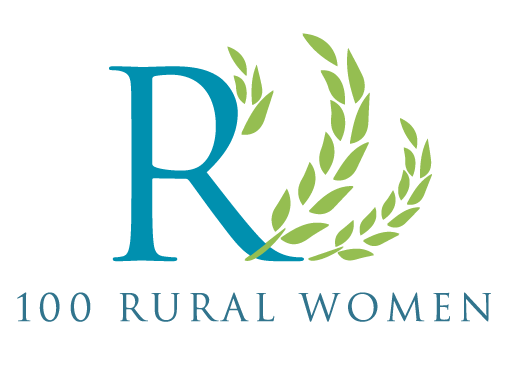“Rural is full of people who really know who they are and what they stand for.“
Hara Charlier is one of our board members here at 100 Rural Women. She feels privileged to serve as president at Central Lakes College, which is a comprehensive community college based in Brainerd and Staples. Hara also spoke for our Ask a Leading Woman series. You can watch the recording here.
We are so fortunate to have Hara on our board at 100 Rural Women. We’re excited for our community to get to know one of the incredible women making the decisions for our organization.
Can you tell us a bit about yourself?
My name is Hara Charlier and I’ve been in Minnesota for seven years now. My husband and I, as well as our two daughters, have lived in six states and seven communities, all of which have been very rural small towns. It’s what created me as a person. The people, the values, and the connection to natural resources– that, to me, is who we are as a country. Rural is full of people who really know who they are and what they stand for. I think it’s incredibly important that we help to ensure that rural communities maintain their vitality and strength so that many centuries from now that we can still have experiences like I did growing up and in my adulthood. So, I’m deeply connected to rural.
How did you get connected with 100 Rural Women?
I got connected to 100 Rural Women years ago when I was invited to a mentoring event and just loved what this organization stood for. I love the concept of empowering women and helping women find their leadership voice and what that can do for our communities. So, when I was asked to be on the board, I just jumped at it. I think we all serve on different boards in our lives and they’re all really important work but this one is heart work. It really is. It’s incredibly important.
You said you’ve moved to 7 different rural communities. Was it difficult breaking into these well-established smaller communities as a newcomer?
Our moves from New York to Ohio to Indiana to West Virginia to Virginia to Minnesota have really been about either education changes or career shifts. That drew us all over the place and I’m very fortunate to have a family that supports what I do. I don’t think we ever envisioned living anywhere other than a rural community that has these roots that we so deeply wanted to be part of.
Some people worry about how it may be hard to break into a rural community, particularly where there aren’t a lot of people who move there. That can be a little more challenging. But what we have found is that as long as you’re moving into that community for the right reasons, everywhere we’ve found people to be very welcoming. They’ve opened their arms and helped us to acclimate. By “right reasons,” I mean that you want to truly be part of that community, help strengthen that community, and get to know the people.
I’m not going to tell you it’s easy to break into new communities. It’s easier when you have children sometimes. But either way, you have to put yourself out there and tell people “I really want to get to know you.” I think it starts with the people moving in, being honest, authentic, and not putting on airs. Just be who you are and be honest about wanting to get to know the community. We’ve never found a place where people said, “Yeah I’m not interested in getting to know you.”
In every place we moved, we intended to stay there forever. I mean that! We ended up moving because of jobs or something else requiring us to make a change, but it was never because of the community. Every one of them has taught us something. They’re all really special and hold a place in our hearts.
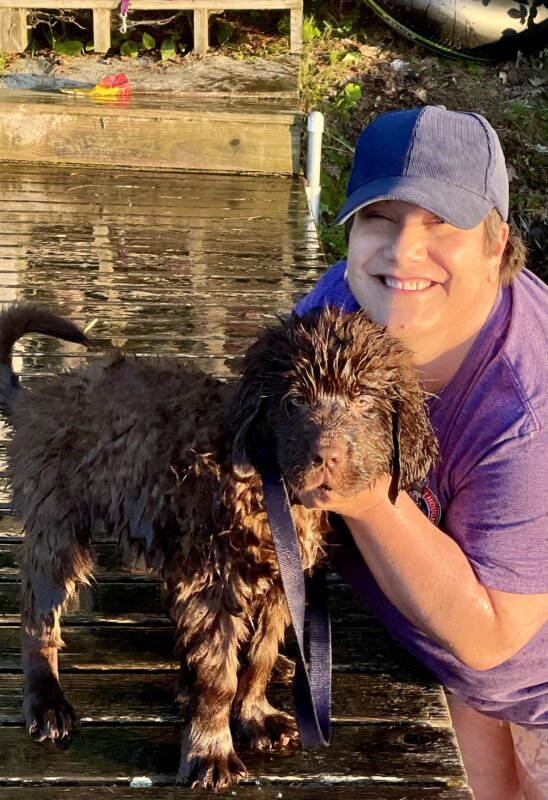
What was your path to leadership?
You know how people say, “I never thought I’d be doing this job.” That’s me. I never thought I’d be doing such a thing.
I’m president at Central Lakes College and my pathway here is pretty typical. My entire career since graduate school has been in higher education, university, and community colleges.
I was a faculty member in Virginia at a community college. I taught anatomy, microbiology, and biology and just loved teaching and thought that’s what I would do forever. An opportunity to move up to administration came up, but I quickly resisted.
Once, we moved for my husband’s job, he’s a watchmaker, and I couldn’t find a position in academia. So, I went into the industry of scientific imaging. Kicking, screaming, and not happy about it at all. But, like most parts of our journey, it taught me something. I became a Director of Operations so I got to help people grow and be their best selves.
I thought, huh, I think that’s what administrators do. It kind of opened a door for me I had previously shut.
Eventually, I became a dean, then a vice president, and throughout that whole time said “I never want to be a president. Are you crazy?” I just resisted the whole time. If you had told me years ago that I’d be doing this work I would have said, “You’ve got the wrong person.” I feel very fortunate because I can’t imagine doing anything else. I’m really privileged to do what I do now.
Throughout my career path, I have had many mentors who helped me see myself differently. My path through my career has only happened because of supporters and mentors, and I try to pay that forward. So, that’s really the pathway.
It’s encouraging to hear that all those different things you’ve done have just led you to the next thing. You don’t need to know what you’re going to do when you’re 53 you just had to know what you were going to do next. You’ll figure it out.
True. I’ve often said I think the worst thing we do to young people is ask them, “What do you want to do when you grow up?” It’s the big, beastly question and we often have students who feel “less than” because they don’t have the answer to that question. They assume everybody knows when really, very few people know. I don’t know how anybody knows! Maybe instead it should be, “What do you enjoy?” or “What are you good at?” to help people find where those two things intersect.
Occasionally you run into those people who always knew what they wanted to do, but most people are just trying to figure it out. I always describe my journey as a bowl of spaghetti. It’s not a straight line, right? Many twists and turns. It’s your life experiences that help you learn and I think society accepts that more today. I just wish we told people that that’s how the journey is. Every mistake has led me to where I am. I still don’t know what I’m going to do when I grow up, and I’m okay with that.
In your “bowl of spaghetti” are there any key discouraging moments that stick out to you? How did you overcome that discouragement?
Well, there were lots of times I felt discouraged. I didn’t overcome them alone, but there are two times that I felt very discouraged. The first was very early in my career.
It took me five different colleges to get my bachelor’s degree. Not connecting with any of the colleges, I left. I was just wandering around getting credits. I thought I wanted to go into psychology. Nope. Then I thought of law. No way.
Finally, I got my bachelor’s degree from Cornell because I was going to be a vet…I am not a vet. I didn’t get into vet school at first. Eventually, I did but by then I didn’t want to be a vet. I went into a doctoral program and my research did not work. For five years. I ended up not completing the doctorate. I had completed all my courses, took my comps, everything and I walked away. The research wasn’t going to work. It was so discouraging and felt like a failure to me. There are a lot of people pursuing doctorates that are ABD (all but dissertation) and it’s just not a place you want to be. I got my master’s in microbiology and the university ended up hiring me to teach, which was the beginning of my teaching career. So, it ended up being the best thing ever.
Many years later I decided to pursue a new doctorate in higher education in community college leadership. It was the encouragement of others that helped me to finally say “I can do this. I can start again.” and I did! It was ’95 when I started teaching for that university and I didn’t finish my doctorate until 2010. So, it was a long time of feeling like I hadn’t achieved what I set out to achieve.
It took me a long time to decide I wanted to be a community college president. It was a huge leap for my brain. Who would want that terrible job? I thought. Now, I know it’s the best job in the world. Back then it seemed like this weird thing for other people. I also lived in a place where there weren’t a lot of women in that role.
The other time that I felt super discouraged is when I applied and became a finalist somewhere close to where I lived at the time but didn’t get the job. It felt incredibly personal (even though it’s not). You put yourself out there for these crazy interviews, you bare your heart, and someone makes a different choice. It’s really about what’s right for that job and that institution, but it feels like they’re discarding you. Which is not the case.
That was really hard for me, and I just never thought I’d put myself out there again. It took finding/putting the right people in my path to say “No, no, no. I think you just didn’t find the right college.” Now, I believe that is exactly what happened. Things just happen the way they’re supposed to happen. It’s hard to accept it sometimes. Like every other disappointment, today I’m so glad I didn’t get that job because I wouldn’t be here. Right? It would have changed the course of my life.
So, those were two giant disappointments for me that felt soul-crushing (and still do a little bit when I think about it) but I’m glad they happened the way they did.
We’ve all had disappointments and successes and triumphs and crushing losses in our lives. Whether you’re 23 or 53 or 103, those things shape us.
If you could give a piece of advice to your former self, what would it be?
If I had to give one piece of advice to my former self, I would tell myself to believe in my abilities. I tell people that my Achilles heel is a lack of confidence. My whole life I’ve struggled with that. Whenever an opportunity presented itself, I would always say “Well I can’t do that.” Even though I had all these people saying “Yes you can!”
The strongest voice was my own and I wish that I could have believed in myself more and not had to depend on the people around me so much.
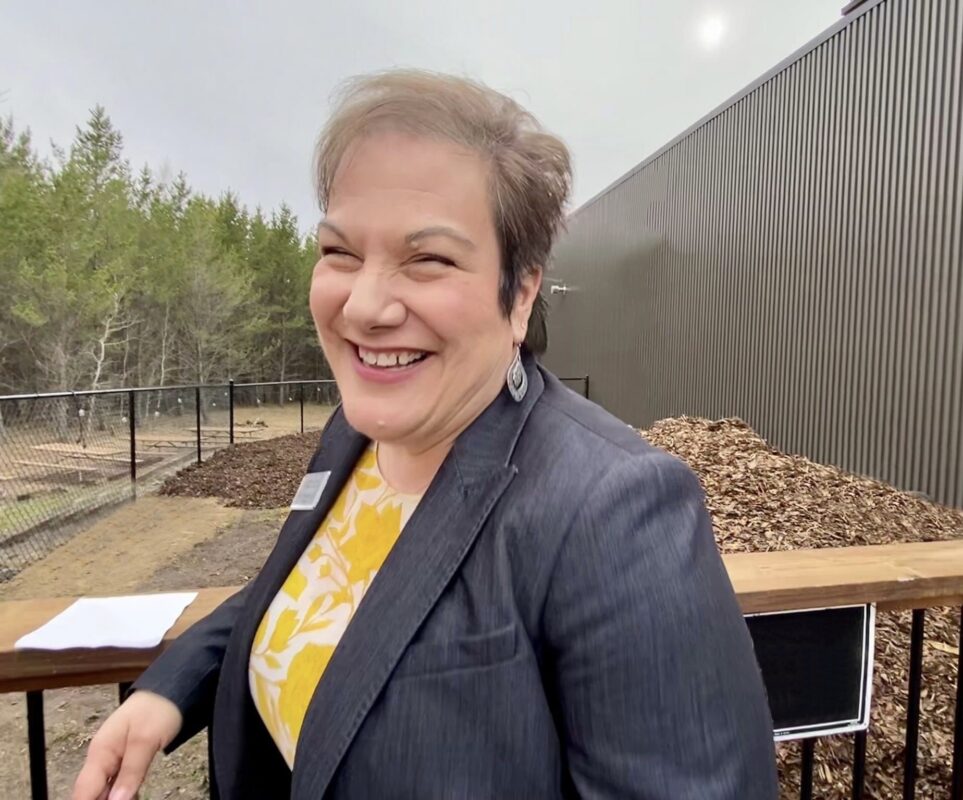
So again, I try to pay that forward and help people believe in themselves. Because people are powerful. They really are. It’s amazing. I meet students every day and I think wow. I mean, these powerful students who use their voices and their passion are going to change the world. They just don’t know it yet.
I appreciate that you’re making an effort to get to know your students. I think that makes the biggest difference in people wanting to stay in school. Having those people higher up that encourage and believe in them makes such a big difference in students seeing their education through.
It’s kind of you to say that. To the best of my ability, I get to know students. I don’t love some of the things that I have to do. I mean, I don’t love policy. Nobody loves all pieces of their job. The reason I love the work is because it’s for students. I mean, that’s why everyone at Central Lakes College loves what they do. 300 people believe in our students.
To feed that, we have to get to know them and talk to them. I know what it’s like to be at a place where nobody knew I was even there, and nobody knew when I left. Four times. It’s not a good feeling. Our goal is for our students to know that we really care about them. We want everybody to feel connected. When people have bumps, we want to be the ones who say “That’s okay. You don’t have to be perfect. You don’t have to get A’s. There’s no such thing as needing a 4.0.” I mean, let’s be real people! Let’s figure out what your goals are and let’s walk with you to help you achieve those goals. That’s what we do here. So, it’s really hard not to be super excited about that.
What are some of the steps you take to create and lead change in your community?
As a community and technical college, we are the community’s college. It’s our responsibility to help strengthen our community. Everything we do is about our community.
Our goal is to be brave enough to have really courageous conversations and talk about the hard stuff. We want to be at the center of every one of those conversations.
When we think of the change that’s necessary, it can be everything from economic, workforce, diversity, equity, and inclusion to many other things. If there’s a conversation about workforce challenges and we are not in the middle of that, we fail. If there is a conversation about diversity, equity, inclusion, how our community is changing, and how we need to be more inclusive, and we are not in the middle of that, then we fail. Our goal is to be truly integrated into the community. The other piece of that strategy is we try to come to it with authenticity. Let’s be really honest in admitting what we don’t know. We need to be answering the questions: what have we tried? What is not working? What can we do together? Is our pride getting in the way? What’s scary?
We try to be change agents with that authenticity and engagement and that puts us at the center of the conversations and helps us to develop partnerships. The door probably would not be open to those partnerships without authenticity and honesty about the problem. So that’s what we try to do.
Who or what has been a big inspiration to you?
Oh, that one’s easy. There’s a whole list of people who are just people who have inspired me. I have to say it’s my daughters. They’re my inspirations. I’ve often said, “I want to be Devon and Lili when I grow up.” When I look at my children, they represent the very best of me and my husband, Russ, and our communities. They’re just incredible young women. Lili is going to be 23 and Devon will be 26. They have faced very difficult things in their lives and they also know that we come from privilege compared to most people in the world. Despite that, life is really hard. But the way they have overcome those obstacles and tried to do the best for their communities, for the world, and for people around them inspires me. I want them one day to look at and be proud of their mom.
